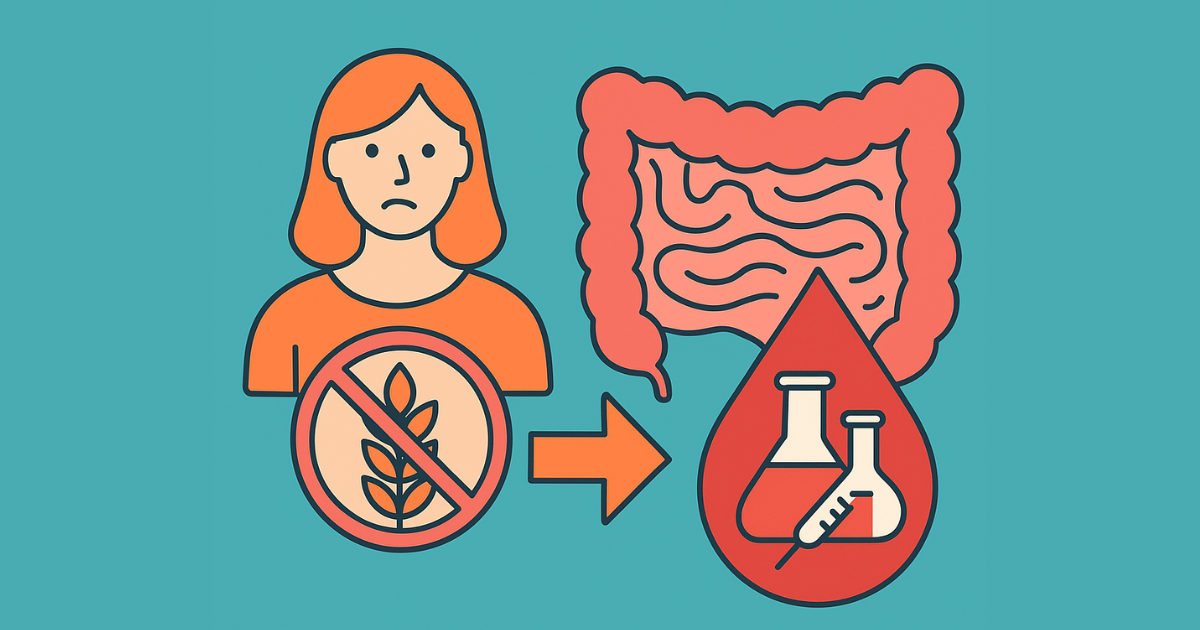Celiac disease and anemia are closely linked health conditions that affect many people worldwide. Celiac disease is an autoimmune disorder where eating gluten damages the small intestine, leading to poor absorption of nutrients. One common consequence of this damage is anemia, a condition characterized by a lack of healthy red blood cells. Understanding the connection between celiac disease and anemia is important because anemia can sometimes be the first sign of celiac disease, even before digestive symptoms appear. This article explores how celiac disease causes anemia, the symptoms to watch for, diagnosis methods, and treatment options. By learning about this relationship, individuals can seek timely medical care and improve their quality of life through proper management.
Understanding Celiac Disease and Anemia
Celiac disease is a chronic autoimmune condition triggered by consuming gluten, a protein found in wheat, barley, and rye. In people with celiac disease, the immune system mistakenly attacks the lining of the small intestine when gluten is ingested. This attack damages the tiny finger-like structures called villi, which are responsible for absorbing nutrients from food.
Anemia is a condition where the body lacks enough healthy red blood cells or hemoglobin to carry sufficient oxygen to tissues. The most common type is iron-deficiency anemia. When the small intestine is damaged by celiac disease, it struggles to absorb essential nutrients like iron, folate, and vitamin B12, all necessary for producing red blood cells. This poor absorption often leads to anemia in people with untreated or undiagnosed celiac disease.
Causes of Anemia in Celiac Disease
When celiac disease damages the small intestine’s villi, it leads to poor absorption of many important nutrients. This is the main cause of anemia in people with celiac disease. One key nutrient affected is iron. Iron is vital because the body uses it to make hemoglobin, the protein in red blood cells that carries oxygen. Without enough iron, iron deficiency anemia develops.
Besides iron, celiac disease can cause low levels of folate and vitamin B12. Both are important for making healthy red blood cells. Malabsorption of these vitamins can cause a type of anemia called megaloblastic anemia, where red blood cells are large and abnormal.
Also, chronic inflammation from the ongoing immune reaction may reduce red blood cell production and lifespan, contributing further to anemia.
Symptoms to Watch For
Anemia linked to celiac disease can cause many symptoms. Common signs include feeling tired and weak, shortness of breath, dizziness, and pale skin. People might also notice headaches, cold hands or feet, and a fast heartbeat.
If vitamin B12 is low, neurological symptoms such as numbness, tingling in the hands or feet, and balance problems may occur.
Sometimes, anemia might be the only symptom that leads doctors to suspect celiac disease, especially if digestive symptoms like diarrhea or stomach pain are mild or absent.
Diagnosing Celiac Disease and Anemia
Diagnosing celiac disease and anemia usually involves several tests. Blood tests are the first step. A Complete Blood Count (CBC) helps check for anemia by measuring red blood cells and hemoglobin levels. Iron studies and vitamin B12 or folate tests check nutrient levels.
For celiac disease, specific antibody tests look for markers like anti-tissue transglutaminase (tTG) antibodies. If these are positive, a small intestine biopsy is often done to confirm the diagnosis by checking for villous damage.
Accurate diagnosis is crucial because treating anemia without addressing the underlying celiac disease will not fix the problem.
Treatment Options
The most effective treatment for anemia caused by celiac disease is a strict gluten-free diet. Removing gluten allows the small intestine to heal, improving nutrient absorption over time.
In addition to dietary changes, iron supplements are usually needed to correct iron deficiency anemia. Folate and vitamin B12 supplements might also be prescribed if those vitamins are low.
Regular monitoring of blood levels helps doctors track recovery and adjust treatment. Lifestyle changes like a balanced diet rich in iron and vitamins support healing.
Can Anemia Be the Only Sign of Celiac Disease?
Yes, in some cases, anemia may be the only noticeable symptom of celiac disease. This form is called silent or atypical celiac disease. Many people with this condition don’t experience obvious digestive issues, so anemia or other complications may be the first clue.
Because anemia is common and can have many causes, doctors often test for celiac disease when patients have unexplained or resistant anemia, especially if iron supplements don’t help.
Who Is at Risk?
Certain groups have a higher risk of developing anemia related to celiac disease. People with a family history of celiac disease or other autoimmune conditions like type 1 diabetes are more vulnerable.
Women, especially of childbearing age, are more likely to suffer from iron deficiency anemia due to menstrual blood loss combined with malabsorption.
Children with celiac disease also risk anemia, which can affect growth and development if untreated.
Preventing and Managing Anemia in Celiac Disease
Preventing anemia involves strict adherence to a gluten-free diet to stop intestinal damage. It is important to eat a well-balanced diet rich in iron, folate, and vitamin B12. Foods like leafy greens, lean meats, and fortified cereals are good options.
Regular medical checkups help detect anemia early and monitor nutrient levels. Avoiding common mistakes like accidental gluten exposure or stopping supplements too soon supports better recovery.
Emotional and Social Impact of Celiac Disease and Anemia
Living with celiac disease and anemia can affect more than just physical health. Many people face emotional challenges like frustration, anxiety, or depression due to ongoing symptoms and dietary restrictions. Fatigue from anemia can limit daily activities and reduce overall quality of life.
Socially, strict gluten-free diets can make eating out, attending social events, or traveling more complicated. This may lead to feelings of isolation or stress, especially if friends or family don’t fully understand the condition.
Support groups and counseling can help individuals cope with these challenges. Learning more about the conditions empowers people to manage symptoms better and maintain a positive outlook.
Long-Term Outlook and Complications
If left untreated, celiac disease and anemia can lead to serious health problems. Persistent anemia may cause heart issues due to low oxygen delivery. Severe nutrient deficiencies can damage the nervous system or cause osteoporosis.
Chronic inflammation from celiac disease increases the risk of other autoimmune disorders and certain cancers. However, with early diagnosis and strict gluten avoidance, most people can recover intestinal health and resolve anemia.
Regular follow-up with healthcare providers is important to catch complications early. A lifelong commitment to a gluten-free diet is the best way to prevent long-term problems and maintain good health.
Conclusion
The link between celiac disease and anemia is strong, making awareness essential. Anemia can sometimes be the first sign of celiac disease, so understanding this connection helps in early diagnosis and treatment. Following a gluten-free diet and proper supplementation can restore health and prevent complications. If symptoms like fatigue, weakness, or unexplained anemia appear, seeking medical advice is crucial. Managing celiac disease carefully allows people to live healthier, more energetic lives.
Frequently Asked Questions (FAQs)
Q1: Can celiac disease cause anemia even without digestive symptoms?
Yes. Some people with celiac disease have no obvious digestive problems. In these cases, anemia might be the only sign, which is why doctors sometimes test for celiac disease when anemia has no clear cause.
Q2: How soon does anemia improve after starting a gluten-free diet?
Improvement varies. Some people notice better energy within weeks, but full recovery of nutrient levels and intestinal healing may take months or even a year.
Q3: Is iron supplementation necessary if someone with celiac disease has anemia?
Usually, yes. Iron supplements help quickly rebuild iron stores while the gluten-free diet heals the intestines to improve natural absorption.
Q4: Can children with celiac disease develop anemia?
Yes, children are at risk. Anemia in children can affect growth and development, so early diagnosis and treatment are very important.
Q5: Are there other nutrient deficiencies linked to celiac disease besides iron?
Yes. Folate, vitamin B12, vitamin D, and calcium deficiencies are common due to poor absorption caused by celiac disease.

Hi, I’m Shafy Ali – a curious mind and passionate writer at Celiac Magazine. I cover a little bit of everything, from everyday tips and how-tos to deeper dives into topics that spark conversation. I enjoy turning research into readable, relatable content that informs and inspires. Whatever the subject, I aim to keep it clear, engaging, and genuinely useful.

